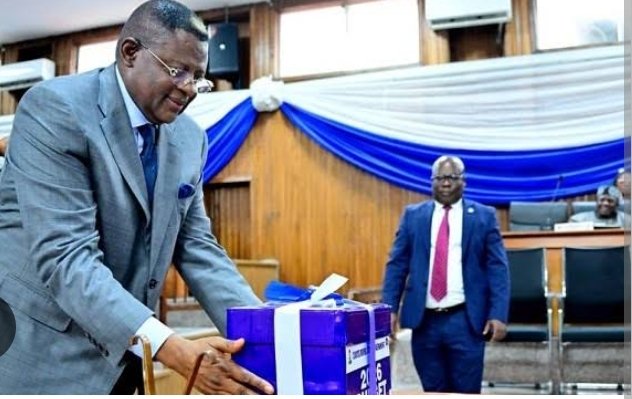Cross River State Governor, Senator Bassey Edet Otu, on Tuesday presented a proposed ₦780.59 billion budget for the 2026 fiscal year to the State House of Assembly, describing it as the “Budget of Inclusive Growth.”
Key Highlights:
- ₦780.59 billion total budget size for 2026, up 17% from 2025
- ₦519.6 billion (67%) for capital projects and ₦260.96 billion (33%) for recurrent spending
- ₦421 billion allocated to the economic sector, ₦163 billion to social services
- Focus on Human Development Index (HDI) over GDP as a measure of progress
- Plans to expand education, healthcare, electricity, and rural empowerment
- Launch of Cross River Social Investment Programme (CRSIP) for women, youth, and the elderly
Presenting the Appropriation Bill before lawmakers, Governor Otu said the proposal reflects his administration’s “People First” philosophy and aims to consolidate the gains made in his first years in office.
“I approached this task with a profound sense of duty, obligation, and determination toward the development of our dear state,” he said. “The annual budget presentation transcends bureaucratic ritual, it defines our shared commitment to inclusive progress.”
Otu explained that the 2026 budget was developed through broad consultations with civil society groups, the private sector, and community stakeholders. He noted that the state would now prioritize the Human Development Index (HDI) as a more accurate indicator of growth and social well-being.
Read also:
- 2025 budget: Delta to expend N50bn on LGs roads, commissioner reveals
- Governor Umo Eno signs N695bn 2025 supplementary budget into law
- Gov. Fubara goes tough, says God ‘ll crush Rivers’ enemies in 2025
Governor Otu said the 17 percent budget increase over 2025 was designed to strengthen revenue generation, deepen human capital development, and promote peace and prosperity across the state.
Reviewing the 2025 fiscal year, Otu noted that the previous “Budget of Sustainable Growth” was revised from ₦538 billion to ₦642 billion due to improved revenue inflows. The adjustment, he said, allowed for urgent interventions in road repairs, rural electrification, and maternal healthcare.
He listed major infrastructure projects currently underway, including the Adiabo–Ikoneto Road, Esuk Utan–Depot Road dualization, and the Yahe–Ebo–Wanakom–Wanikade axis, as evidence of his administration’s commitment to infrastructure renewal.
The governor commended the 10th Assembly for passing 45 bills and maintaining strong collaboration with the executive arm. He pledged continued transparency and accountability in managing public funds.






